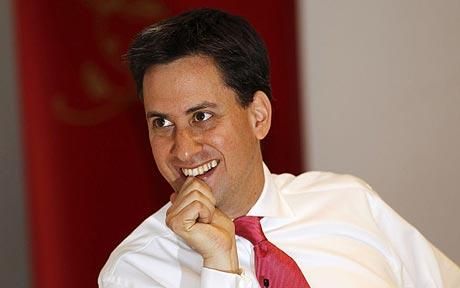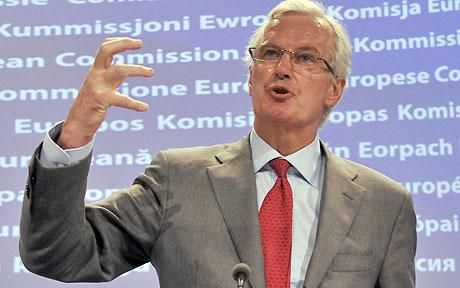Prince Charles Embarks on Lavish Train Trip to Spread Green MessageTHE GUARDIAN:
Eight carriages for a core party of 14 people to preach a message of sustainability on week-long tour of Britain Prince Charles boards the royal train at Glasgow Central station. Photograph: The Guardian
Prince Charles boards the royal train at Glasgow Central station. Photograph: The GuardianAs a mode of transport, the royal train suits Prince Charles down to his hand-made brogues: resolutely old-fashioned, rather costly for the taxpayer, but just possibly ahead of its time.
The locomotive this afternoon hauled the prince out of Glasgow station, furnished with the prince's bespoke study, a grand dining room and bedroom suite, complete with bath and his and hers beds, on the start of a four-day tour of Britain that will cost the taxpayer at least £50,000.
The contrast between the train's opulence, which seemed worthy of an oligarch, and the purpose of its journey was, to some, jarring. Charles has begun a week-long trip to persuade his "subjects" to go green, and the train from which he has chosen to assert his voice in the climate debate has been converted to run on cooking fat, which, its suppliers estimate, creates just one-eighth of the carbon dioxide of oil-based diesel.
Until Friday the prince will criss-cross Scotland, England and Wales to "extol the virtues of a sustainability revolution", preaching the benefits of towelling nappies, cycling, and European city breaks by train. The "Start" campaign, as he is badging the initiative, "doesn't lecture or hector anyone, nor does it attempt to frighten", he insisted today. To run the campaign, which could cost £2m a year, he has hired a leading marketing executive from B&Q, Jo Kenrick, and signed up major sponsors including Asda, BT and EDF.
"What I hope to get across to as many people as possible is that, however awful the predicament we face with climate change and the unsustainable use of resources that keep us all alive, we aren't going to get anywhere by telling everyone they need to stop doing things," he said on the platform. "There has been quite enough of that in recent years."
But even before his train set off to the sound of a lone piper, the prince was facing perhaps inevitable accusations of double standards for using lavish transport – eight carriages for a core party of just 14 people – to preach a message of sustainability.
"I'm not sure he'll get that many people jumping on his bandwagon," said Nicky Coles, 38, a child carer who watched Charles roll up to the launch in a motorcade of petrol-guzzling cars. "He's a royal. He has the money to go green while Joe Bloggs hasn't. He can get his gardener to grow organic vegetables while the rest of us go to the supermarket and pay more."
Read on and comment >>> Robert Booth | Monday, September 06, 2010
 THE TELEGRAPH: Ed Miliband’s Labour Party will push for increases in taxation at a higher rate than that proposed by Gordon Brown at the last general election.
THE TELEGRAPH: Ed Miliband’s Labour Party will push for increases in taxation at a higher rate than that proposed by Gordon Brown at the last general election.



















